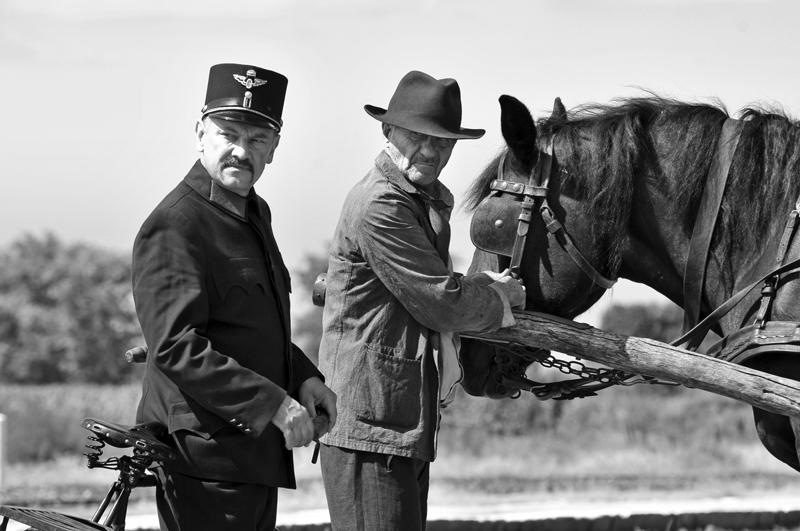There is a particular “what if” game that many people like to play: if you were alive during a particular historical atrocity–the Holocaust, say–would you take an active role in resistance against Nazism? Maybe by punching a Nazi, Indiana Jones-style? Or by employing Jews in your factories, a la Oskar Schindler? Possibly you’d issue fake passports, as Raoul Wallenberg did?
The answer is often brushed off as a no-brainer, but history is murkier. For every Raoul Wallenberg, thousands turned in Jewish friends and coworkers, and millions more did nothing to help them. The Hungarian villagers depicted in Ferenc Toeroek’s 1945 include all these types. Using striking high-contrast black-and-white cinematography and sharp, lean dialogue recalling both High Noon and Ingmar Bergman, the film ironically highlights the moral gray area in which the characters unexpectedly find themselves, examining the collective guilt of a town where some citizens actively collaborated with Nazis, others passively went along with them, and the rest maintained silence as all of the village’s Jews were arrested and deported.
That silence proves fragile, unraveling over the course of a few hours on a sweltering August Sunday in 1945, when two Orthodox Jews step off a train with two large trunks filled with perfumes and other luxury items. This sets off a ripple effect throughout the village that intensifies as the two men–a father and son, although that’s not made clear in the film–pass through the village on their way to the derelict Jewish cemetery.
Hard truths emerge as news spreads of the Jews’ return. The town clerk used his office to enrich himself and others from their Jewish neighbors’ misfortune, and tensions ratchet as the certainty that came from having certificates of ownership for previously Jewish property devolves into quiet paranoia and poorly concealed fury that masks uneasy fear. Nearly everyone in town is implicated, from the priest to the town drunk to an old peasant woman.
The film offers a lot of food for thought but little in the way of resolution. Loose ends abound, and many questions remain unanswered. People are forced to see the consequences of their actions and inactions, but the film stops short of showing us what it’s like to live with that knowledge.
The lack of resolution is fitting. As Jewish American political theorist Hannah Arendt (who narrowly escaped Nazi Germany) notes in her 1970 essay On Violence, “When all are guilty, no one is; confessions of collective guilt are the best possible safeguard against the discovery of culprits, and the very magnitude of the crime is the best excuse for doing nothing.”
1945 plays at the Michigan Theater on May 15 at 8 p.m.


